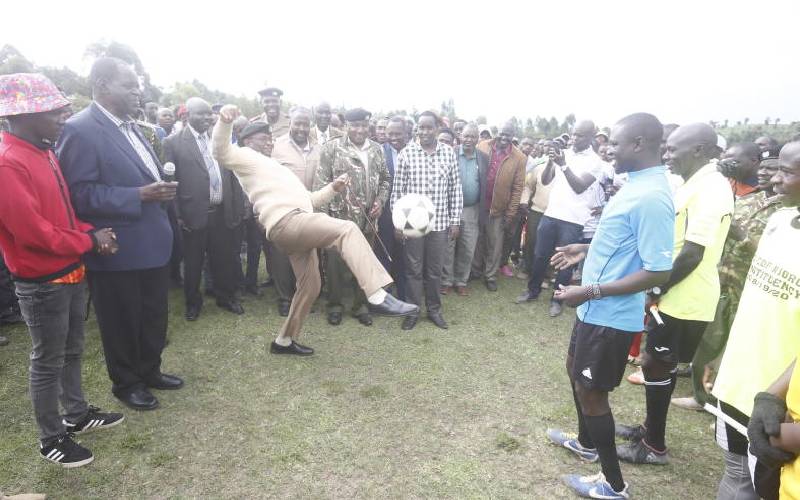×
The Standard e-Paper
Smart Minds Choose Us

Don’t shoot to kill, shoot to score! This was the clarion call at a football tournament held in Mauche, bringing together youth teams drawn from Narok North and Njoro sub-counties.
Eight teams comprising of players from Kikuyu, Ogiek, Kipsigis and Maasai communities challenged each other on the pitch for two days.